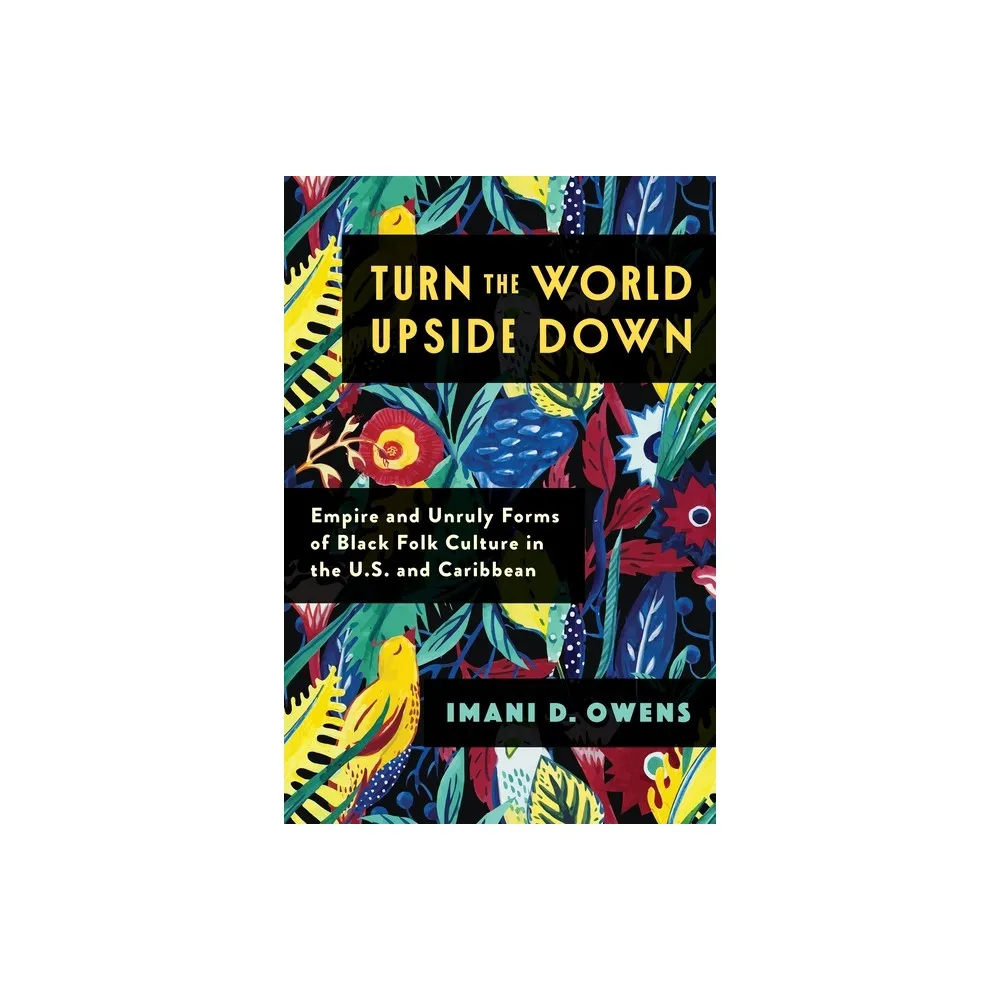Home
Turn the World Upside Down
Loading Inventory...
TARGET
Turn the World Upside Down
From Columbia University Press
Current price: $130.99


TARGET
Turn the World Upside Down
From Columbia University Press
Current price: $130.99
Loading Inventory...
*Product Information may vary - to confirm product availability, pricing, and additional information please contact TARGET
About the Book Black hemispheric writing in the first half of the twentieth century was forged by the intertwined legacies of colonialism, U.S. empire, and Jim Crow. As writers sought to transmit the terror and the beauty of Black life under oppressive conditions, they increasingly turned to representations of folk culture. Many critics and scholars have perceived these representations as an effort to reclaim an authentic folk heritage as the foundation for national literary movements. In Turn the World Upside Down, Imani Owens tells a different story showing how writers and performers crafted alternatives to the tropes of authenticity and developed a different set of theories and aesthetic forms and styles to understand the relationship between folk culture and the modern Black experience. Turning to a transnational and multilingual archive, Owens considers a wide range of writers, including Eric Walrond and Jean Toomer, the experimental ethnographies of Zora Neale Hurston and Jean Price Mars, the written and recited poetry of Langston Hughes, Nicolas Guillen and Eusebia Cosme, and finally, the essays, dance work, and radio plays of Sylvia Wynter. She considers how these writers and performers depicted folk culture-and blackness itself-as a site of disruption, experimentation, ambiguity, and flux. In their attunement to Black labor, movement, speech, ritual, these figures show how everyday folk contributed to the stirrings of modernity while being excluded from its promises. At the same time, she argues that the aim of these works is not to render the folk more knowable or worthy of assimilation into predetermined models of citizenship or resistance but rather to suggest alternatives-- Book Synopsis Honorable Mention, 2024 Gordon K. and Sybil Lewis Award, Caribbean Studies Association In the first half of the twentieth century, Black hemispheric culture grappled with the legacies of colonialism, U.S. empire, and Jim Crow. As writers and performers sought to convey the terror and the beauty of Black life under oppressive conditions, they increasingly turned to the labor, movement, speech, sound, and ritual of everyday folk. Many critics have perceived these representations of folk culture as efforts to reclaim an authentic past. Imani D. Owens recasts Black creators relationship to folk culture, emphasizing their formal and stylistic innovations and experiments in self-invention that reach beyond the local to the world. Turn the World Upside Down explores how Black writers and performers reimagined folk forms through the lens of the unruly--that which cannot be easily governed, disciplined, or managed. Drawing on a transnational and multilingual archive--from Harlem to Havana, from the Panama Canal Zone to Port-au-Prince--Owens considers the short stories of Eric Walrond and Jean Toomer; the ethnographies of Zora Neale Hurston and Jean Price-Mars; the recited poetry of Langston Hughes, Nicols Guilln, and Eusebia Cosme; and the essays, dance work, and radio plays of Sylvia Wynter. Owens shows how these figures depict folk culture--and Blackness itself--as a site of disruption, ambiguity, and flux. Their works reveal how Black people contribute to the stirrings of modernity while being excluded from its promises. Ultimately, these works do not seek to render folk culture more knowable or worthy of assimilation, but instead provide new forms of radical world-making. Review Quotes Turn the World Upside Down profoundly recreates the literary and cultural history of Black diasporic modernism. Working across national and linguistic borders, the book brings a richly comparative method to texts too often siloed in disciplinary and area studies scholarship, from works by U.S. literary icons like Langston Hughes and Zora Neale Hurston to less-studied figures like the Cuban performer Eusebia Cosme. Imani D. Owenss critical return to folk culture will forever change how readers approach the beautiful unruliness and asymmetry of Black cultural expression.--Sonya Posmentier, author of Cultivation and Catastrophe: The Lyric Ecology of Modern Black Literature Turn the World Upside Down is a groundbreaking contribution to scholarship on early twentieth-century Black folk culture in the Americas. This truly innovative and complex study ranges across linguistic and national boundaries and represents a major contribution to the fields of African diaspora studies, Caribbean studies, and American studies--Aaron Kamugisha, author of Beyond Coloniality: Citizenship and Freedom in the Caribbean Intellectual Tradition Original and compelling, Turn the World Upside Down invests in and expands Black diaspora studies, displays stunning archival research, and highlights heretofore unseen connections and underread texts next to highly known figures in the field.--Samantha Pinto, author of Infamous Bodies: Early Black Womens Celebrity and the Afterlives of Rights Thoughtfully written and creatively argued, Turn the World Upside Down is both fascinating and timely. Imani Owens innovatively theorizes the idea of folk culture to bring new insights to the field by helping us to rethink our understanding of folk culture and its manifold functions in African diasporic cultures. In fact, Owens performs a disruption of her own by bringing together US empire studies and New Southern Studies to offer a multilingual, comparative, transnational analysis that enriches and deepens our readings of African diasporic literatures and cultures.--Rgine Michelle Jean-Charles, author of Looking for Other Worlds: Black Feminism and Haitian Fiction About the Author Imani D. Owens is associate professor of English at Rutgers University.









